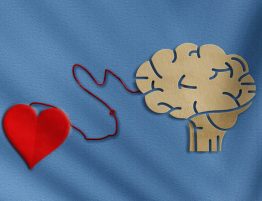
Marital stress – especially if it’s severe – may make it harder for younger adults to regain good physical and mental health following a heart attack, increasing the likelihood for chest pain and hospital readmission, a new study suggests.
“Health care professionals need to be aware of personal factors that may contribute to cardiac recovery and focus on guiding patients to resources that help manage and reduce their stress levels,” Cenjing Zhu, the study’s lead author, said in a news release. Zhu is a doctoral candidate in chronic disease epidemiology at the Yale School of Public Health in New Haven, Connecticut.
“Our findings support that stress experienced in one’s everyday life, such as marital stress, may impact young adults’ recovery after a heart attack,” Zhu said. “However, additional stressors beyond marital stress, such as financial strain or work stress, may also play a role in young adults’ recovery, and the interaction between these factors requires further research.”
The research will be presented Sunday at the American Heart Association’s Scientific Sessions, being held virtually and in person in Chicago. The findings are considered preliminary until the full study results are published in a peer-reviewed journal.
Heart disease is the leading cause of death in the United States, where an estimated 605,000 first-time heart attacks and 200,000 recurrent attacks occur each year.
Previous studies have shown psychological and social stress can damage a person’s ability to recover from heart disease. However, other studies have linked being married or having a life partner to better health and heart disease prognosis. The new study investigated how the state of that relationship affected a person’s ability to recover from a heart attack.
Participants were drawn from the VIRGO (Variation in Recovery: Role of Gender on Outcomes of Young AMI Patients) study. They included 1,593 adults 18 to 55 who were treated for heart attacks in 2008-2012 at 103 hospitals across the U.S. All participants were married or in a committed partnership at the time of their heart attack.
Participants self-reported their level of marital stress one month following their heart attack using a 17-item questionnaire called the Stockholm Marital Stress Scale. They were then classified into one of three stress-level groups: absent/mild, moderate or severe.
One year following their heart attacks, participants answered an additional set of questions related to their physical and mental health. A point scale was used to assess how they perceived their overall health, bodily pain and whether their physical health affected daily activities. They also answered questions related to their mental well-being and social interactions. Hospital records were used to determine whether participants were readmitted for any reason.
More women than men reported having severe marital stress. For every 10 women in the study, four reported severe stress levels, compared with 3 in 10 men.
The analysis showed participants who reported moderate or severe marital stress were 67% more likely to report chest pain, and nearly 50% more likely to be readmitted to the hospital for any reason than their peers who reported mild or no marital stress. Those with severe stress levels scored lower in physical health and mental health. Participants reporting severe marital stress also scored lower in quality of life.
“This study highlights the importance of evaluating the mental health of cardiac patients and is consistent with previous studies that show a greater burden of marital stress on the health of women,” Dr. Nieca Goldberg said in the release. Goldberg, who was not involved in the study, is clinical associate professor of medicine at NYU Grossman School of Medicine and medical director of Atria NY in New York.
“A comprehensive approach to the care of cardiac patients that includes physical and mental health may transform the care of cardiac patients from the care of one organ to a patient’s global health,” Goldberg said. “The health care system should support the clinical assessment of both physical and mental health as that may lead to better outcomes and healthier lives for our patients.”
Find more news from Scientific Sessions.
American Heart Association News’ mental health coverage is supported by Diane and Daniel Shimer. AHA News is solely responsible for all content and editorial decisions.
If you have questions or comments about this American Heart Association News story, please email [email protected].







